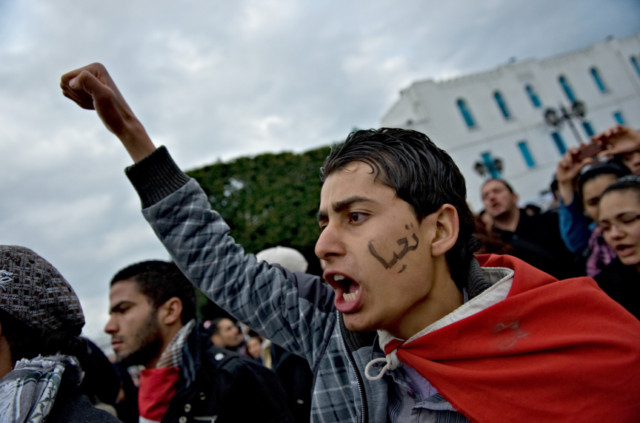
Dubai: “Not everything a man wishes for happens; [sometimes] there is no wind in the sail” .
This Arabic proverb describes the path that the Arab Spring took three years after its first spark. The winds are not yet in favour of the Arab masses that went to the streets calling for change, reform, and democracy.
The Arab revolutions, political experts say, erupted on a quest to achieve freedom, justice and human dignity, and to institutionalise these wishes. But, “this has not been achieved. Conflicts are still expanding and the scene is still murky,” said Omar Ashour, a political scientist at Exeter British University, in an interview with Gulf News.
Countries are still in a transitional phase and grappling with unfulfilled hopes. Ashour, however, noted that it is not uncommon for deep uncertainty to prevail following revolutions. “Three years is not a long enough period in the history of revolutions,” he said, citing the examples of the French and Russian revolutions.
Palestinian political science professor Nader Saeed agreed with Ashour that revolutions need time. But, the main difference between the so-called Arab spring countries and other revolutions is the “absence of an intellectual renaissance base”, he said.
“What is happening in the Arab countries is an unavoidable evil, and this evil is that all countries in the transitional phase pass through unstable times.”
What is to be learned from the Arab Spring is that both dictatorial regimes and the Islamist regimes that replaced them are wrong, Saeed said.
“Any [political] party that comes to power after revolutions will face fierce political and economic challenges, because there are deep-rooted institutions that enjoyed special advantages during autocracy rule and they refuse to give up these gains easily, even if the regime was defeated by arms, as was the case in Libya. You can’t eradicate what was built in 40 years in one or two years,” Ashour said.
The former Libyan leader, Muammar Gaddafi, was killed by a mob during the revolution in the northern African country. The presidents of Tunisia, Yemen and Egypt were ousted. The first two — Zine El Abidine Ben Ali and Ali Abdullah Saleh — are living outside their countries, while the Egyptian president Hosni Mubarak is on trial on charges of conspiring of killing protesters and abusing power.
“The Arab Spring was a development of historic importance, threatening many powerful interests. Power does not say ‘thank you for dismantling us’ and then quietly walk away,” said American philosopher Noam Chomsky.
“In the past I’ve described it [Arab Spring] as a ‘work in progress’. Now, regrettably, the phrase “work in regress” would be more appropriate,” he was quoted as saying. According to Ashour, Tunisia seems to be the country with the most hopeful future, as it experienced far less bloodshed than other countries, namely Egypt, Libya and Syria.
“Bloodshed complicates transition to democracy, making the process longer,” he said. Most analysts agree that democracy needs to start at the grass roots level and it needs much time to evolve. Also, they note there is no identical form of democracy that can be implemented everywhere.












